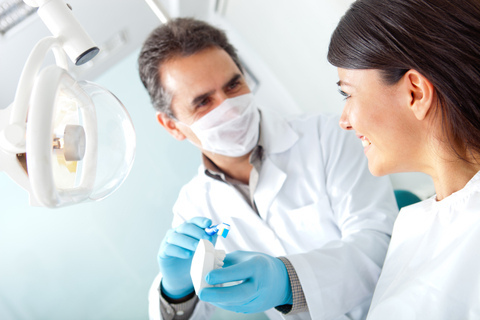June 7th, 2017

If you are planning on taking a vacation this summer, we ask that you let us know ahead of time so that we may schedule your summer appointments more efficiently. We also encourage patients and their parents to be proactive in determining when they make their summer appointments.
If you will be gone for an extended period (more than six weeks), we recommend you visit Johnson Orthodontics prior to leaving and schedule another visit shortly after your return. Lastly, please remember not to indulge in hard, sticky, and chewy treats while enjoying your vacation. We look forward to seeing you soon and hearing about your adventures!
May 31st, 2017

If you have been thinking about undergoing orthodontic treatment to straighten teeth or correct jaw alignment, the first step is scheduling an orthodontic consultation at Johnson Orthodontics. During the consultation we will actively listen to your concerns and address all of your questions, as well as discuss a treatment options that would best suit you or your child's situation.
Here are the top five questions that most patients want answered during their initial orthodontic consultation:
- Can I benefit from orthodontic treatment, and if so, how long will it take?
- How frequently will my appointments be scheduled?
- Can I expect any pain when getting braces? (Ask Dr. Dennis Johnson about the ways we address pain management).
- Will I need to have teeth extracted, headgear, expansion appliance, etc.?
- How much will it cost and what payment options do you offer?
Visit our website for more answers to your questions prior to your initial consultation. Dr. Dennis Johnson and our team at Johnson Orthodontics are happy to answer all your questions and concerns, and excited to explain all aspects of your treatment plan, as well as the expected outcome. We believe your orthodontic experience should be comfortable, hassle-free, and most importantly, leave you with the smile you've always wanted.
May 24th, 2017

If you’re brushing your teeth twice a day during your orthodontic treatment, Dr. Dennis Johnson and our team think that’s wonderful! But, don’t forget that it’s also important for you to visit your general dentist every six months, or as recommended, in addition to brushing your teeth and flossing. (And visiting Johnson Orthodontics for regular adjustments, of course.)
Dental checkups are crucial for maintaining good oral health. Your general dentist can check for problems that might not be seen or felt, detect cavities and early signs of tooth decay, as well as catch and treat oral health problems early. During an oral exam, your dentist can also check the health of your mouth, teeth, gums, cheeks, and tongue. Checkups will also include a thorough teeth cleaning and polishing.
If you have not been to the dentist in the last six months, let us know during your next adjustment visit and we will provide a few great references in the Columbus, OH area!
May 17th, 2017

If you have been thinking about getting a piercing, or if you already have one or more, there are some health risks our team at Johnson Orthodontics wants you to know about. It's important to know the risks involved with oral piercing, including infection, chipped teeth, gum damage, nerve damage, loss of taste, or tooth loss that could occur as a result.
Your mouth contains millions of bacteria, and infection is a common complication of oral piercing. Many people who have piercings tend to regularly touch them, paving the way for bacteria to enter piercing sites. Also, food particles that collect around piercing sites can lead to infection.
Besides hindering your ability to talk and eat, oral piercing also leads people to develop a habit of biting or playing with their piercings, which can lead to cracked or fractured teeth. While the fracture can be confined to the enamel of the tooth and require a simple filling, you also run the risk of the fracture going deep into the tooth, which may require a root canal, tooth extraction, and additional dental treatment.
If you still decide to get an oral piercing, you should realize that it will take some time to heal (anywhere between four to six weeks) and it may be very uncomfortable. Also please keep in mind that it will be an added responsibility to your life, as it will require regular upkeep. We want you to make sure that you’re committed to the task of taking care of it for the full healing period and beyond.
We encourage you to clean the piercing with antiseptic mouthwash after eating, and brush the jewelry each time you brush your teeth. If you have any questions, please don't hesitate to give us a call!





 Website Powered by Sesame 24-7™
Website Powered by Sesame 24-7™